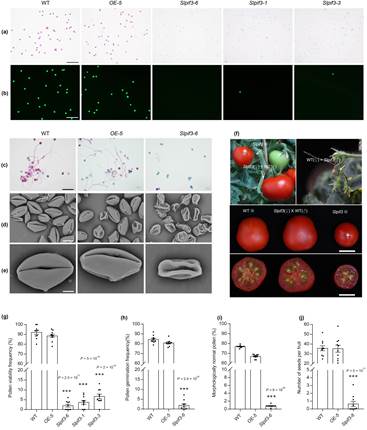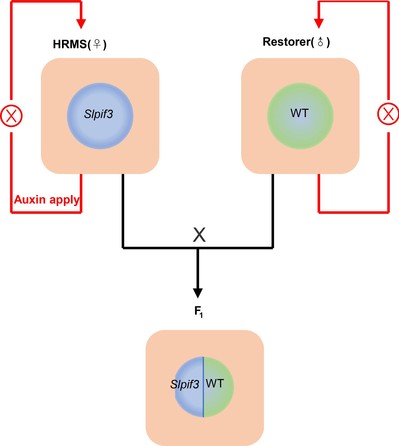On November 23, Prof. LU Gang at the Zhejiang University College of Agriculture and Biotechnology and Dr. Xinai Zhao at Heidelgerg University co-published an open-access research article entitled "Phytochrome Interacting Factor 3 regulates pollen mitotic division through auxin signaling and sugar metabolism pathways in tomato" in the journal New Phytologist. This study opens up the door for creating hormone-regulated genic male-sterile lines for tomato hybrid seed production.

In flowering plants, the development of pollen is of immense importance to fertility and heredity. However, the mechanisms underlying mitotic cell-cycle progression during male gametophyte development remain obscure. Through genetic, histological and transcriptomic anlayses, LU Gang et al. confirmed that Solanum lycopersicum phytochrome Interacting Factor 3 (SlPIF3) is directly involved in the regulation of pollen development in tomato. Slpif3 mutants are shown to exhibit a defective pollen phenotype with a poor germination rate caused by the arrest of pollen mitosis I, accompanied by auxin deficiency and lower soluble sugar levels in anthers.

Further studies revealed that SlPIF3 affects auxin biosynthesis and sugar metabolism in anthers by directly regulating the expression of SlGLT1 and SlCWIN9. Most important of all, the fertility of Slpif3 mutants can be partially restored by exogenous auxin in a dose-dependent manner. "Our research provides a new strategy for creating hormone-regulated genic male-sterile lines for tomato hybrid seed production," said Prof. Lu.






